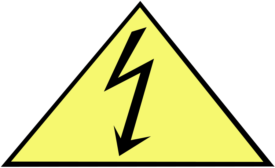Home » electrical hazards
Articles Tagged with ''electrical hazards''
From MSA - The Safety Company
Arc flash hazards are serious. Protect your workers.
Here's what you need to know.
March 1, 2018
Become a Leader in Safety Culture
Build your knowledge with ISHN, covering key safety, health and industrial hygiene news, products, and trends.
JOIN TODAYCopyright ©2024. All Rights Reserved BNP Media.
Design, CMS, Hosting & Web Development :: ePublishing






